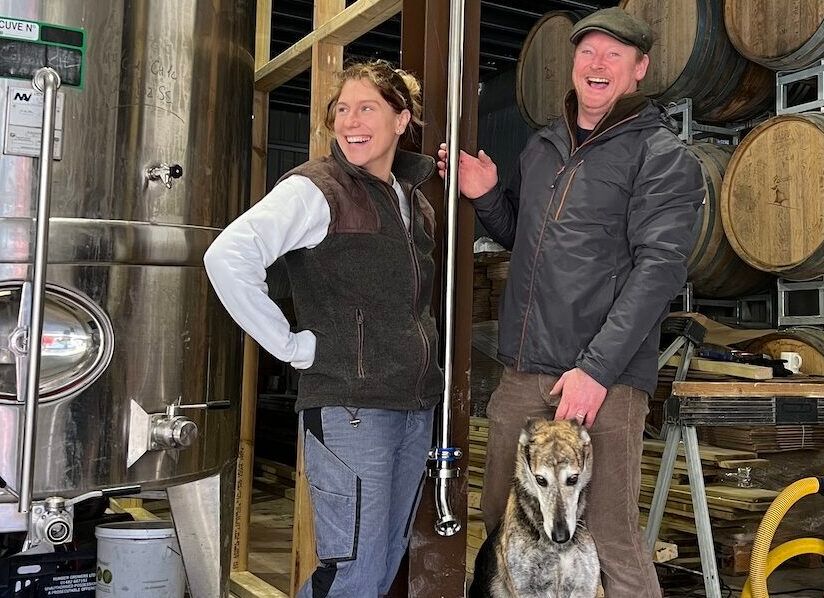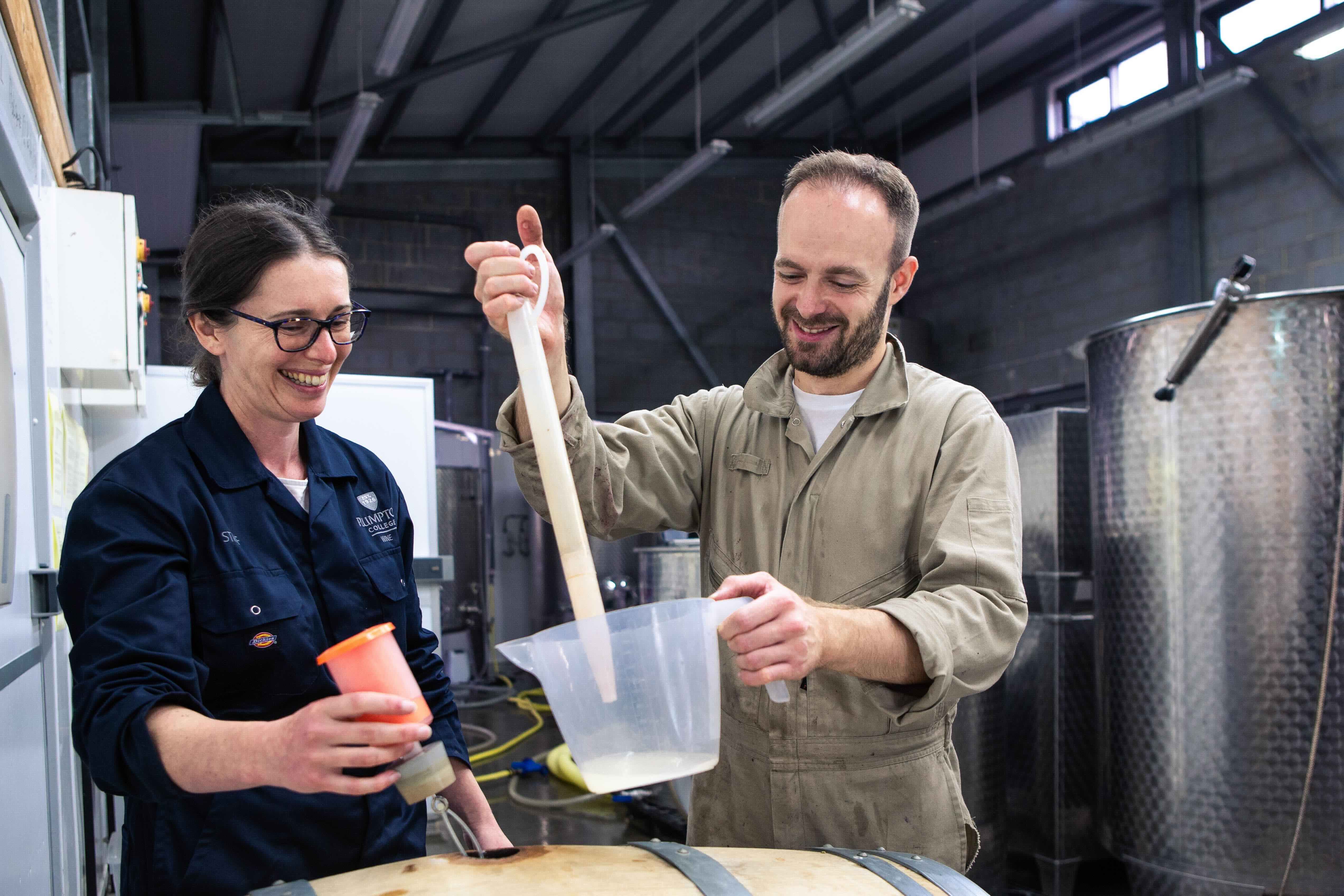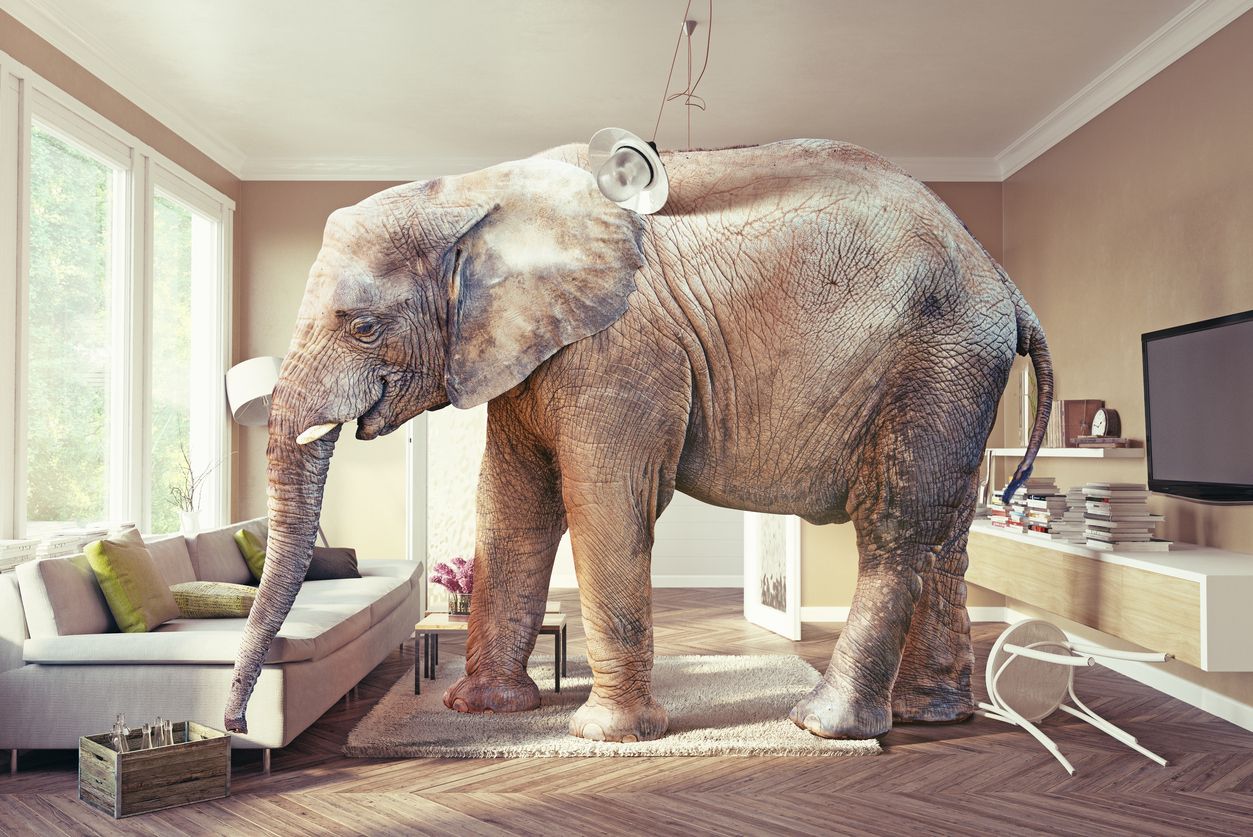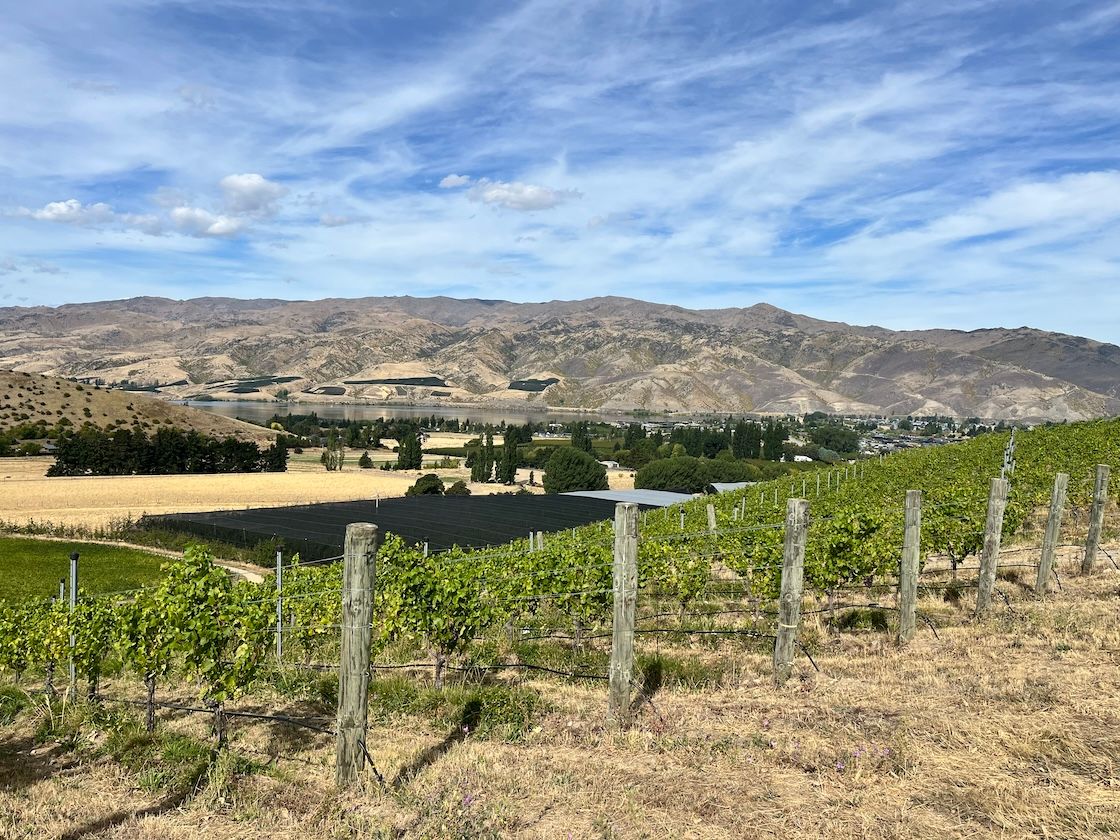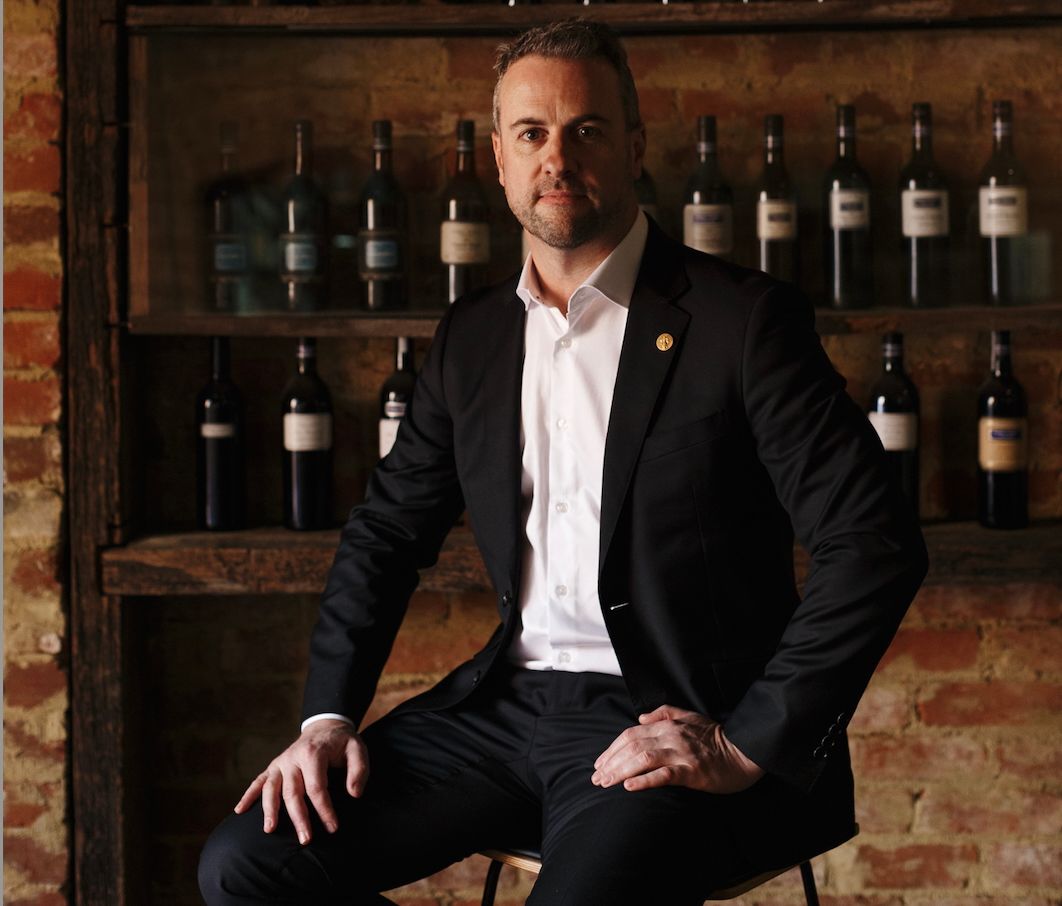I’m not generally given to Kevin McCloud moments, but this late summer, sitting on James Deakin’s Worcestershire terrace at Wagtail Retreat, looking onto his vines and the Malvern Hills and enjoying the sunset with a glass of his bubbly in hand, I felt I was witnessing a genuine Grand Design.
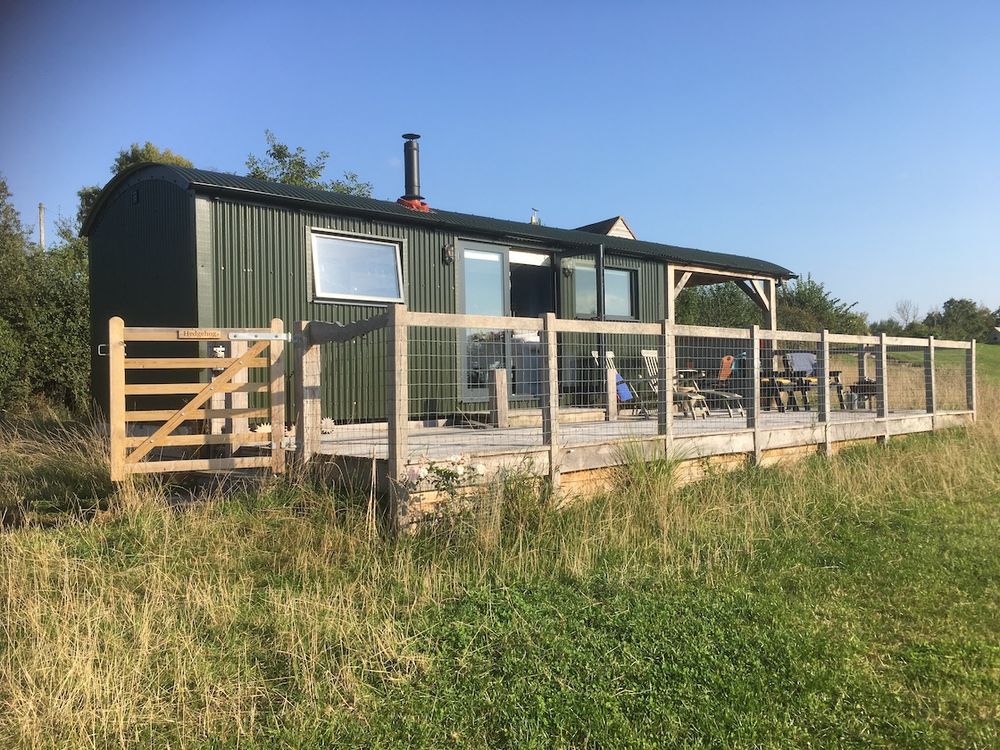
Wagtail Retreat was all built by hand by James Deakin
Across the way, the lake he dug and the three luxurious, exquisitely decorated Shepherd Huts he built with his own hands. To my left his jewellery workshop, the legacy of his years in the family business, Deakin & Francis, the UK’s oldest jewellery business established in 1789, the year of the French Revolution, and still today one of the biggest. Silver-work and jewellery is still very much a thing for him – Deakin offers classes to those staying in his huts, usefully adding a third income steam to the huts and wine.
However, we were here to discuss the harvest which is due to start the following day; Siegerebbe, Solaris and Pinot Precoce first, then, rains allowing, the Pinot Noir two to three weeks later.
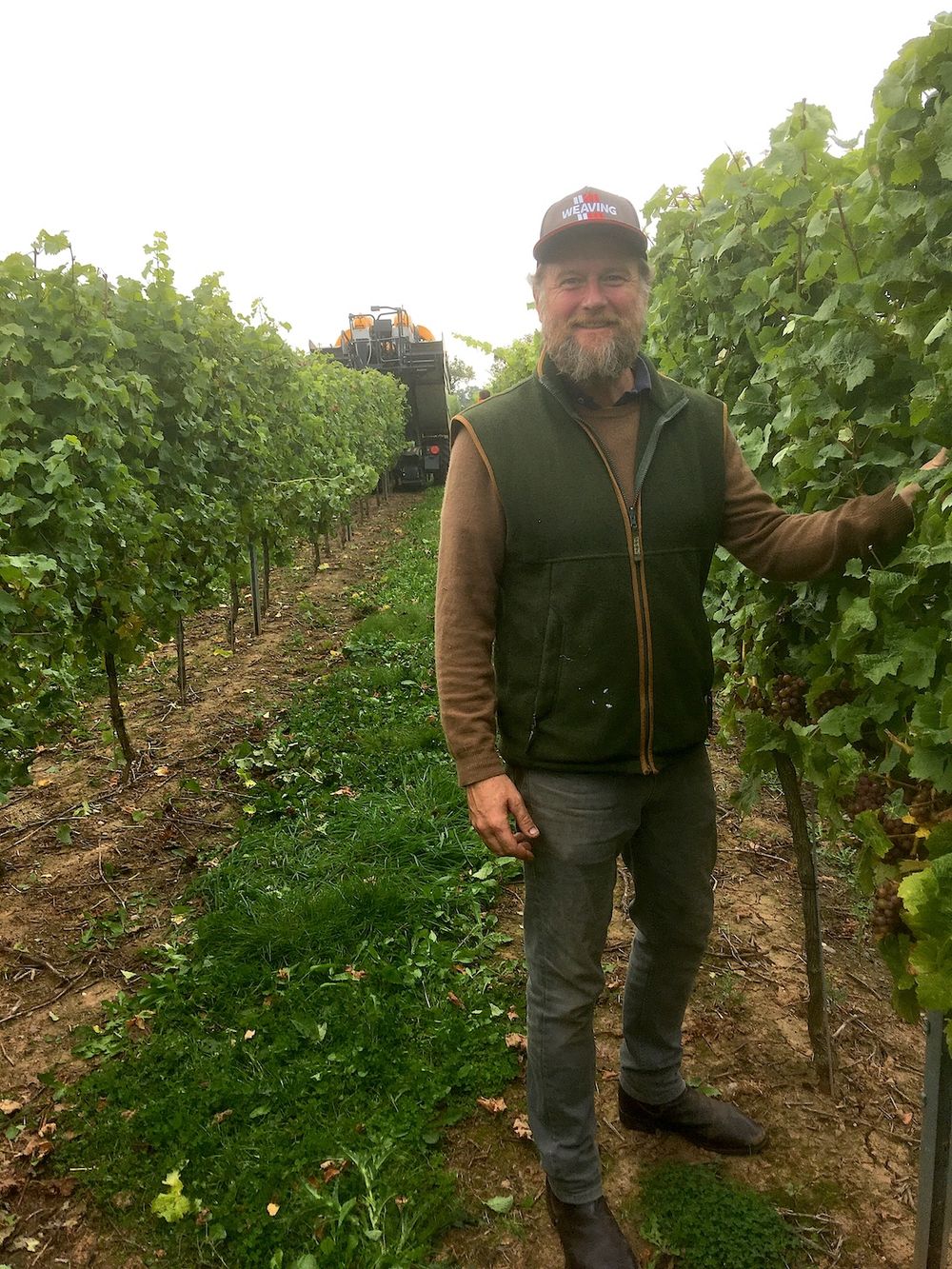
“Our good harvest this year really was a stroke of luck," James Deakin, Wagtail Retreat
“Timing really is everything,” says Deakin, admitting he’s been on a steep learning curve since first planting the vines back in 2016, on what had been his late grandmother’s property. His vines yielded a record 57 tons of grapes last year, more than double the previous 25 tons of 2022 – largely because his neighbours vines came on stream and were added to the total – but iffy weather this year means that total will drop, with much of it sold onto the Stourbridge-based Halfpenny Green winery.
He hasn’t been alone in realising his Grand Design, called the Wagtail Retreat: ongoing support from his wife Chloe and young daughter, an unexpected but welcome partnership with his neighbour Jon, who also planted vines thus doubling Wagtail’s size, and a course at Plumpton College have all been crucial.
Martin Vickers and the Halfpenny Green connection
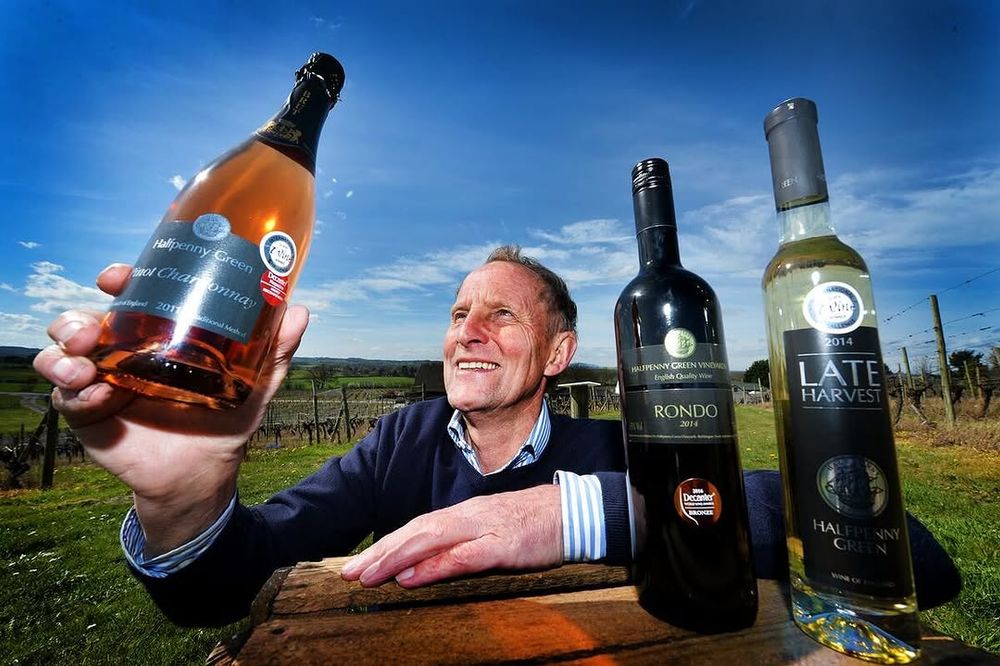
Martin Vickers first planted vines in 1983 - he was particularly proud of the fact that his wines are sold in Jeremy Clarkson's pub in the Cotswolds
Equally important was the encouragement and enthusiasm of Martin Vickers, founder of Halfpenny Green Wine Estate which turns Deakin’s grapes into wine and has over 100 other grower clients. Vickers, who I meet the next day, was a true mentor to Deakin, dismissing his fears that grape-growing, after years of making jewellery, would be beyond him. (That next day, September 20, would be Martin’s last day on earth: he passed away in his sleep after his final day of harvest, aged 82).
“Martin Vickers became an incredible friend to us all at Wagtail Retreat, tolerating Jon’s and my childish enthusiasm and battling it with his phenomenal knowledge of 40 years. He has held our hand from the very start and is in our soil,” says Deakin.
Vickers was also something of a visionary first planting vines in 1983 when English wine was truly a bad joke (those of us beyond a certain age might remember the grim Concorde sparkling wine, a drink which made Babycham seem sophisticated).
The fact Vickers built up his business in the Black Country (better known for beer and pork scratchings than wine, and not renowned for good weather) rather than Sussex, Kent or Hampshire made his achievement all the more extraordinary. But this wasn’t a triumph of hope over experience. His first plot was 0.2 hectares (with the wine made for him at Three Choirs winery near Ledbury, another English pioneer), reaching some 12 hectares today with a further 28 hectares of vines under grower contract, including of course, those of James Deakin.
“We’ve been getting busier and busier,” said Vickers, hopping between the vines and looking at the progress of the Pellenc grape harvester – apparently one of just two in the UK – as it picks and sorts its way along the rows.
Vickers was particularly proud of the fact that his wines are sold by Jeremy Clarkson in his new pub The Farmer’s Dog in the Cotswolds alongside wines made by Denbies, Three Choirs and Chapel Down under such characteristic names as Chateau Dorking and Chateau Newent.
“Our Halfpenny Green Penny Red (aka Chateau Stourbridge in Clarkson-speak) has been selling brilliantly because it’s uncomplicated but full bodied and fruity. Punters love it,” he said.
Wines as an escape route
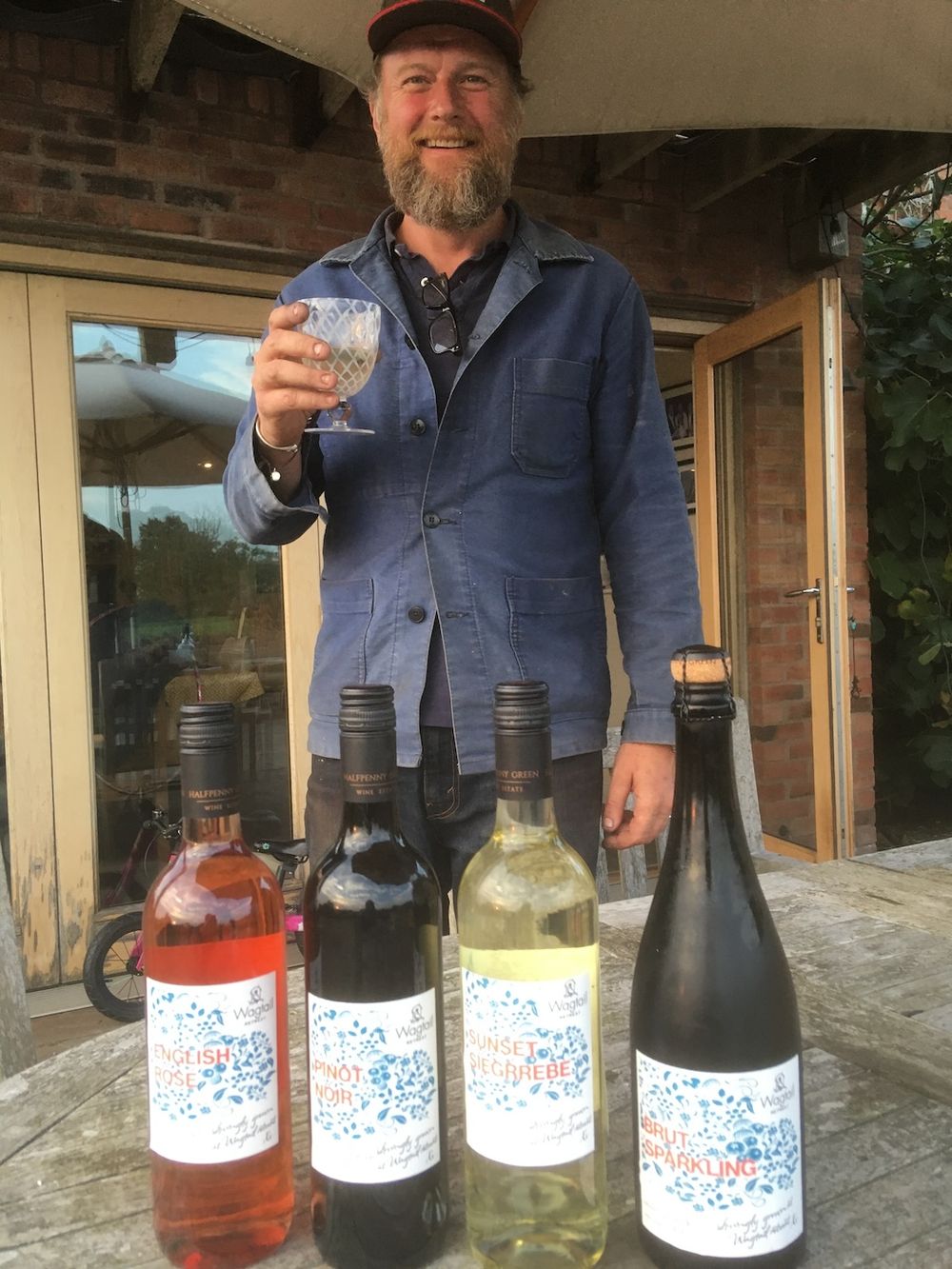
"There are exciting times ahead” - James Deakin, Wagtail Retreat
Much of the fruit that goes into it comes from Wagtail and the red that Deakin sells on site is identical, an uncomplicated blend of Pinot Noir Precoce (fruhburgunder) and Pinot Noir (spatburgunder). Alongside it are a very moreish, rounded just-off-dry Sunset Siegerrebe – a crowd-pleasing aperitif and perfect with Thai and Vietnamese food, as I discover that evening – and a decent traditional method Brut Sparkling, made from Seyval Blanc, Chardonnay and Pinot Noir.
It’s all a long way from the family jewellery business (seven generations and counting) which consumed Deakin’s life until he switched direction into wine and shepherd’s huts, a shift encouraged by Chloe’s unexpected pregnancy and also Covid.
“I just couldn’t keep doing it all, the travelling, the meeting of clients, the constant liaising with other family members over the direction of the business. Here I’m my own boss and all the success, and failures, are mine,” he says.
He admits to being nervous about his next step - making his own estate wine, rather than wine made from his and other growers’ fruit.
“I’m aware it’s a big step… what if it’s not very good?”
I quote Samuel Beckett to him (as one does on such occasions) “Ever tried. Ever failed. No matter. Try again. Fail again. Fail better.”
But I suspect part of the worry is financial and finding a market. Deakin currently produces just under 1000 bottles each of his three wines, with the rest of the grapes blended at Halfpenny Green. Changing this equation and using his own grapes to make his own wine could be tricky and will require winemaking expertise that he doesn’t yet have.
However, that’s all for the future.
The 2024 harvest and beyond
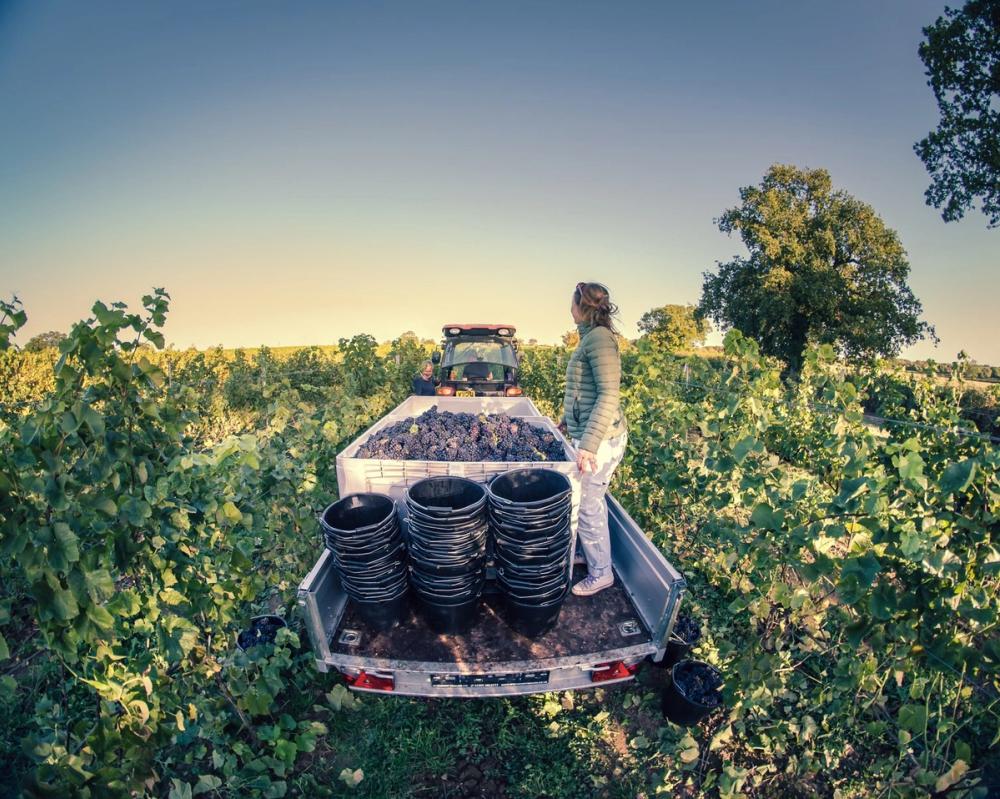
Chloe during the 2024 harvest
“We are incredibly lucky to be harvesting this year. A damp/wet English spring made flower development sticky, vineyards to our west and north struggled to grow a grape: Hens and Chicks is how most growers are describing their grapes,” he says, referring to the dramatic difference in berry sizes.
So how did it all turn out?
“We were estimating we’d produce 40 tons this year, with the last variety, Pinot Noir, picked on October 15. But if we harvest 30 tons we should be very pleased. Hopefully the acids will hold. We have had very little botrytis this year and the starlings stayed away,” he says, adding that Vickers said extra attention to detail and keeping ahead of things are absolutely key, particularly when the climate isn’t helping as much as it could.
“Our good harvest this year really was a stroke of luck – others haven’t been so fortunate.”
You can say that again. After a boom yield in 2023 that led to a surfeit of British wine – enough for 22m bottles, double the 2022 level – a washout summer and a dismal autumn, with lots of rain, left many vineyards mildewed and rotting. Final figures for the harvest suggest it will be well down on recent years with the feelings of gloom for many growers reinforced by the budget – National Insurance increases and Inheritance Tax changes which will hit big producers and many family-owned ones too.
In a recent statement Wine GB CEO Nicola Bates pointed out:
“English and Welsh wine is still a new and emerging sector. This year we surpassed the 1,000-vineyard milestone and have been the fastest growing agricultural sector,” she said, adding that this growth has happened in the absence of government support.
And credit where credit is due. The fact a grape grower located outside Worcester, of all places, has had such a good run in an otherwise far from stellar year speaks volumes about how far the English wine industry has come, and its long-term potential.
Need for support
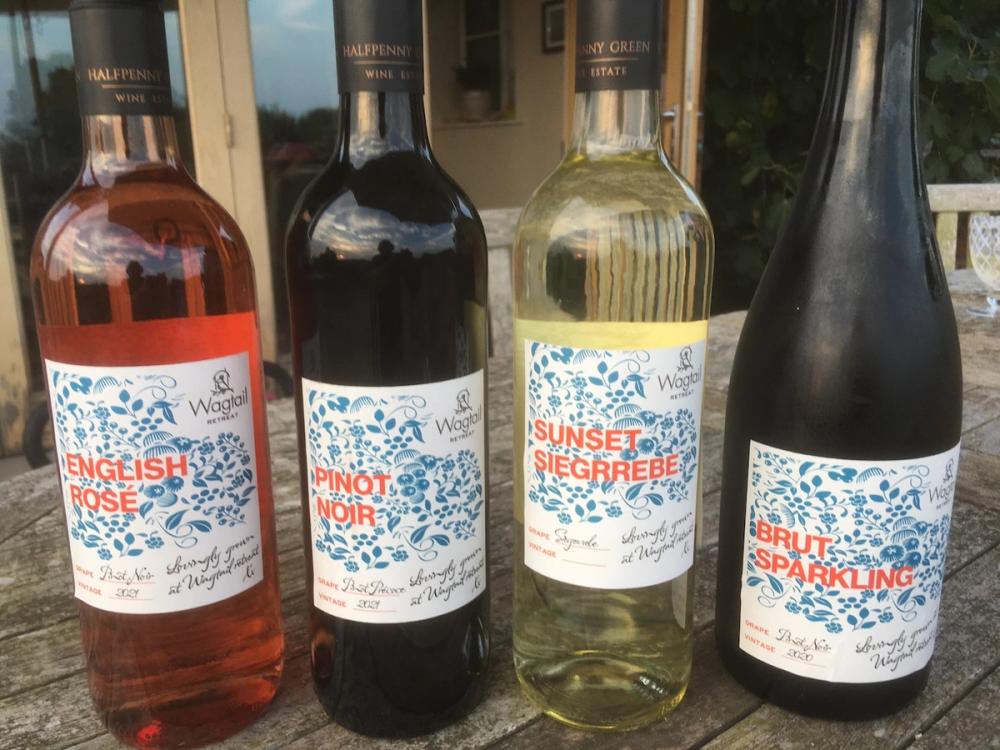
When I met the late Martin Vickers of Halfpenny Green, his enthusiasm was infectious.
“The wine growing business really has taken off here in a way that I would never have imagined, and in places you could never have guessed,” he said. “We’ve now got clients all over the country, a few here in the Midlands, some in Hampshire and Somerset nine producers in Wales and even one in the Lake District”.
But, as Bates suggests, the government can play its part in encouraging the further growth of an industry which is currently on course to provide 30,000 multi-skilled jobs to mostly rural communities by 2040.
“The Government needs to recognise that our wine production is not operating on a level playing field with other wine-producing countries… For this to be achieved, we need a duty cut and the ABV band for lower duty calculation increased as well as relief introduced at the cellar door and for small wine producers.”
In other words, some steps to encourage more people like Deakin and Vickers to step forward.
“Before Martin passed, he said he was as proud as we were with the crop. I have just returned from doing a Christmas Fayre resulting in many sales with people – many of whom admit they shy away when they see signs promoting English wines – trying some and then buying bottles for their Christmas feasts. I could not be prouder of my team. There are exciting times ahead.”



